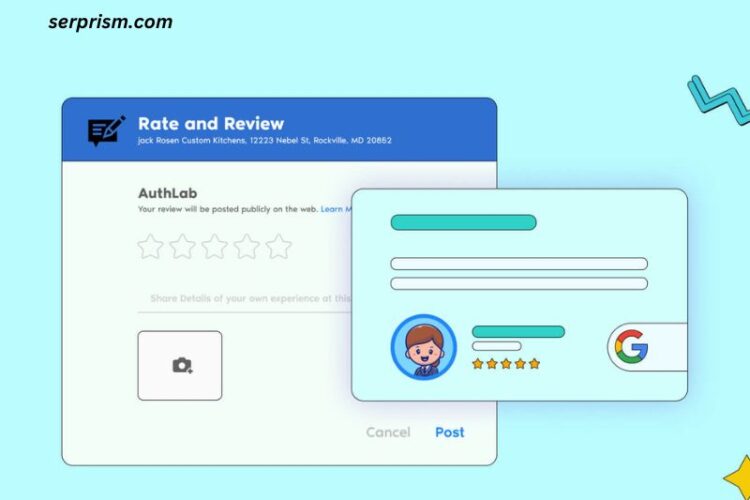
In the ever-evolving landscape of digital marketing and search engine optimization (SEO), Google has continuously introduced innovations aimed at enhancing user experience and search relevance. One of its latest ventures, Google Gemini, has sparked significant interest among marketers, webmasters, and content creators. As a new AI-based system, Gemini promises to revolutionize how Google assesses content and links. In this article, we’ll explore what Google Gemini is, how it works, and whether it reviews links content.
Understanding Google Gemini
What is Google Gemini?
Google Gemini is an advanced AI model designed to improve Google’s search capabilities. Unlike its predecessors, Gemini integrates multimodal learning, allowing it to analyze and understand various types of content, including text, images, and video. This capability aims to deliver more nuanced search results and enhance the relevance of the content shown to users.
The Importance of AI in Search
The use of AI in search engines is not new, but Gemini represents a significant leap forward. By leveraging AI, Google can understand user intent better, provide contextually relevant information, and assess content quality with a more sophisticated approach. This technological advancement is crucial in a digital age where users demand quick, accurate, and relevant information.
How Google Gemini Works
Analyzing Content
At its core, Google Gemini uses advanced algorithms and machine learning to evaluate content. It looks at various factors, including:
- Relevance: How well the content matches the user’s search query.
- Quality: Assessing the credibility, originality, and depth of information.
- Engagement: Understanding how users interact with the content, such as time spent on the page and bounce rates.
Assessing Links
Links have long been a fundamental aspect of SEO. Google has historically used links as a key indicator of content quality. With Gemini, the assessment of links may undergo a transformation:
- Contextual Evaluation: Rather than simply counting links, Gemini evaluates the context in which they are used. This means analyzing whether the links are relevant to the content and beneficial for the user.
- Quality over Quantity: Google has emphasized the importance of high-quality backlinks. Gemini likely takes this further by assessing the authority of the linking sites and the relevance of the linking context.
- User Experience: Gemini might factor in how links contribute to the overall user experience on a webpage. This could include examining whether links lead to high-quality resources or if they detract from the content’s value.
Does Google Gemini Review Links Content?
The short answer is yes, Google Gemini does review links content, but its approach is evolving. Let’s break down how this review process may look in practice.
Link Relevance and Context
Gemini’s ability to understand context means it can determine whether links are relevant to the main content of a webpage. For example, if a cooking blog includes links to ingredient suppliers, Gemini will assess whether these links enhance the content. If the links are unrelated or serve no purpose, it may negatively impact the content’s SEO performance.
Quality of Linking Domains
With Gemini, the quality of linking domains is more critical than ever. A link from a highly authoritative site is far more valuable than a link from a low-quality source. Gemini likely evaluates the domain authority, trustworthiness, and relevance of the linking sites, aiming to prioritize high-quality backlinks in its rankings.
User Engagement Metrics
User engagement plays a significant role in how Gemini reviews links content. If users frequently click on a particular link, spend time engaging with the linked content, and share it, Gemini may interpret this as a sign of quality. Conversely, if users quickly navigate away after clicking a link, it may signal that the link is not valuable, potentially affecting the original content’s ranking.
The Role of Internal Links
Internal linking strategies are essential for SEO, and Gemini likely assesses how internal links contribute to content structure and user navigation. Proper internal linking can enhance the user experience, guiding readers to additional relevant content. If Gemini detects a well-structured internal linking system that keeps users engaged, it may view this favorably in its content assessment.
The Future of Links and Content in SEO
As Google Gemini and similar technologies continue to evolve, the role of links in SEO will likely become more sophisticated. Here are a few trends to watch:
A Shift Toward Semantic Search
With advancements in AI and natural language processing, search engines are moving toward semantic search. This approach emphasizes understanding the meaning behind queries rather than focusing solely on keywords. In this context, the relevance and quality of links will be paramount as they contribute to a deeper understanding of the content.
Emphasis on User Experience
User experience (UX) is becoming increasingly important in SEO. As Google’s algorithms prioritize content that provides value to users, links that enhance the UX will be favored. This means that marketers and webmasters need to focus on creating valuable content that integrates links meaningfully.
The Role of Content Authority
As Gemini evaluates content quality, the authority of the content creator will also play a significant role. Content from established experts in a field may receive a boost, especially when linked appropriately. Building authority in a niche can lead to more valuable backlinks and improved rankings.
The Importance of Diverse Content Formats
Gemini’s multimodal capabilities mean that content creators should consider diverse formats. Blogs, videos, infographics, and podcasts can all play a role in a comprehensive content strategy. As users engage with various content types, the links associated with them will also be evaluated in different contexts.
Best Practices for Optimizing Links Content with Google Gemini
To thrive in the age of Google Gemini, content creators and marketers should adopt best practices for link content optimization:
- Focus on Relevance: Ensure that all links are relevant to the main content. Conduct regular audits to remove outdated or irrelevant links.
- Build Quality Backlinks: Focus on acquiring backlinks from authoritative sites within your niche. Guest blogging, partnerships, and outreach can help in this regard.
- Enhance User Experience: Create a seamless user experience on your site. Ensure that internal links are easy to navigate and enhance the reader’s journey through related content.
- Utilize Diverse Content Formats: Embrace different content formats to engage your audience. Use videos, infographics, and podcasts to diversify your content and attract backlinks from various sources.
- Monitor User Engagement: Utilize analytics tools to track user engagement metrics. Understanding how users interact with your links can provide valuable insights for optimization.
- Establish Authority: Position yourself as an authority in your field. Create in-depth, high-quality content that showcases your expertise, making it more likely that others will link to your work.
Conclusion
Google Gemini represents a significant advancement in how search engines evaluate content and links. By incorporating AI and a multimodal approach, it aims to enhance user experience and search relevance. Understanding that Google Gemini does review links content—and recognizing the nuances of this review process—will be critical for marketers and content creators looking to succeed in the digital landscape.
As the landscape of SEO continues to shift, adapting to these changes and focusing on quality, relevance, and user engagement will be essential. The future of digital marketing lies in creating meaningful, valuable content that resonates with users while aligning with the sophisticated capabilities of technologies like Google Gemini.




